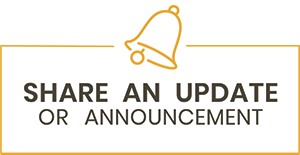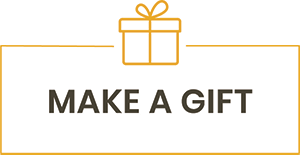March 2021 Newsletter
A Note from the Dean
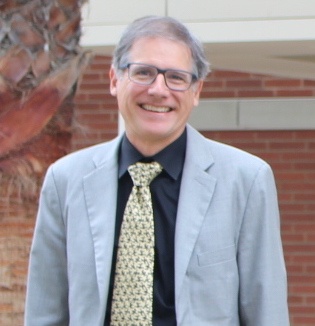
Hello! Welcome to the inaugural issue of Discovery: The CNSM Factor, a quarterly newsletter created just for our College of Natural Sciences and Mathematics (CNSM) family. We want you to see firsthand how your support helps the people and programs in our college. We couldn't do this important work without you. Your support makes a huge difference in access, opportunity, and quality for our students.
We hope you enjoy this newsletter. Please don't hesitate to reach out and let us know what you'd like to see in future issues.
At a Glance
Here are the articles you will find on this page. Use these links to jump to a particular article, or continue scrolling to read them all!
5 Things to Look Forward to Once We Return to Campus
The past couple of semesters have been extremely difficult for everyone, not being able to see our friends and colleagues in-person. This time has built up a lot of anticipation and we can't wait to see everyone again (following appropriate safety guidelines, of course)! That's why we decided to share some of our favorite on-campus activities that we can't wait to do again— together.
1. Nights at the Observatory

Come Observe the Wonders of the Universe! Provided by both the department and donor support, the Physics and Astronomy Department telescopes are located on the roof of the Hall of Science and are available for use every Tuesday (depending on weather conditions). Follow @CSULBPhysics on social media to stay up-to-date on Nights at the Observatory information.
2. Science Learning Center (SLC)

The Science Learning Center (SLC) provides unique learning experiences for elementary and middle school aged students in local communities, as well as the students of CSULB, through exhibits and activities that encourage questioning and hands-on investigation. In 2020, the SLC exhibits have grown and we can't wait to show them off and inspire our local students!
3. Science and Math Open House

The open house is certainly one of the biggest events that we're looking forward to. Not only do we get to see our future students and scientists but we get to interact with you and show you our beautiful campus. You will also get to see the Shark Lab, tour the marine labs, challenge yourself with math, meet the robotic "Obi-Wan Coyote" and much more! This event usually signals our semester kick-off. We certainly hope that it does next year, and we can see each other and look forward to an incredible academic year together. Admission is free and open to the public. Donations are greatly appreciated. This event is fun for the whole family, so bring everyone!
4. In-Person Colloquia

Weekly department seminars are wonderful opportunities for students and faculty (and Alumni!) to learn from leading scientists at other institutions Visiting scientists share their latest research findings and talk about what's on the horizon. A lively Q&A session at the end gives students a chance to engage with the speaker and ask follow-up questions. We've successfully transitioned those in-person presentations to zoom meetings, but we certainly can't wait to be back in the Hall of Science with everyone!
5. Student Research Symposium

Each fall semester, the College provides an opportunity for students to showcase their faculty-mentored research to through poster presentations. The entire CSULB campus community and friends of CSULB are invited to celebrate these students' accomplishments and examine their research. We can’t wait for you to be impressed with the research our students have been able to do even during the campus closure!
We want to hear what you're most excited for, let us know!
Labs To Go
At the start of the pandemic, many of our favorite restaurants and businesses quickly pivoted to focusing on to-go orders. Although ambiance is not included, you can still partake in some of your favorite Long Beach cuisine and products in a socially distanced way in your home. But how could the College of Natural Science and Mathematics (CNSM) ensure our students could still participate in laboratory instruction while at home? The answer was to pack up our labs to-go (ambiance not included).
While teaching classes via alternate modes of instruction, a unique challenge at CNSM has been innovating the way we deliver our lab classes. Research labs have their own new guidelines to follow, but lots of lab classes have sent home specialized lab kits for the semester.
Thanks to the flexibility provided by your gifts to the CNSM Dean's Excellence Fund, faculty members and instructional support techs have assembled— often in their own homes— hundreds of lab kits to satisfy the distance learning requirements while still providing the opportunity to learn through doing. These kits include everything a student needs to successfully complete a project and were handed out with the help of the bookstore at the start of the semester.
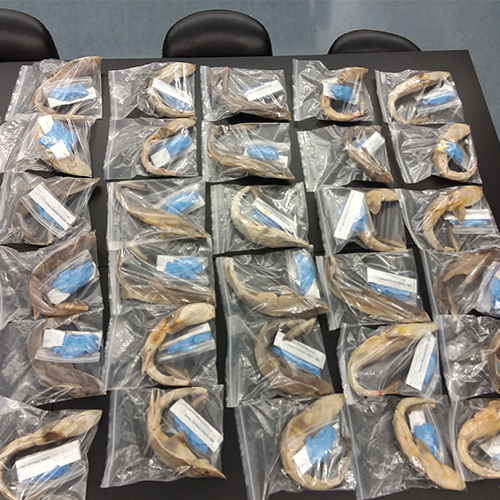
Shark lab kits.
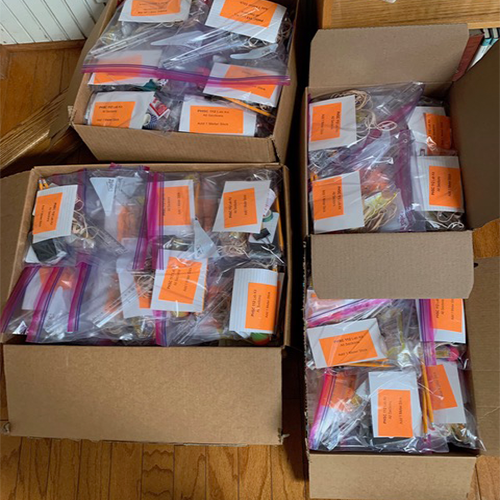
Physics lab kits.
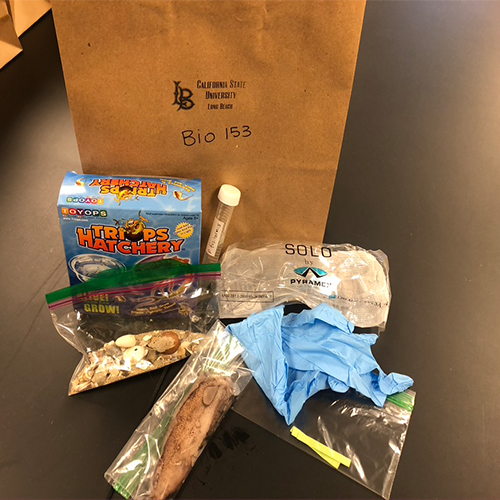
Biology lab kits.
We know having hands-on experiences is an important part of a well-rounded, science-based education that allows students to prepare for successful careers. With these kits, students have the unique opportunity to conduct lab procedures in their own homes or study spaces despite the limitations of the COVID-19 pandemic.
With the dedication of our entire college community, we can be confident that the quality of education our students are receiving has not diminished. These kits are testament to faculty commitment to subject matter, your investment, and student success.
CNSM will always strive to adapt and innovate for the betterment of our students— with or without the ambiance.
Sub-Zero Hero
How one biology lab technician, donor support, and a collaborative campus environment ensured CSULB's closed vaccine rollout got a smooth start.
CNSM's sub-zero freezers are typically used for instructional purposes. One Molecular Biology lower-division course uses them to store large amounts of student-fractionated cells from cauliflower. Upper-division courses require them to store their supplies in ultra-low temperatures to keep delicate DNA, RNA, and proteins from degrading or inactivating. Last year, a donor replaced one of the freezers when it fell into disrepair, ensuring the Microbiology program could continue to preserve samples, enzymes, and tissues that are vital to their work. But now, one of these donor-funded freezers has become an invaluable resource to the whole campus.
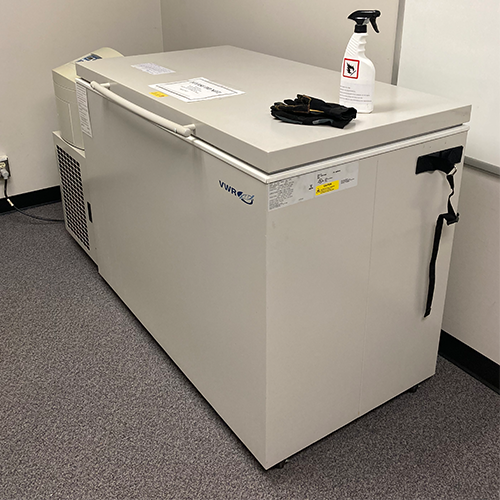
The campus was set to receive doses of the Pfizer COVID-19 vaccine as part of a closed vaccine rollout plan, with a goal of getting the huge university population back to business-as-usual. But logistical issues almost halted the process before it began.

The Pfizer vaccine must be stored within a specific temperature range in order to be effective. Knowing the storage requirements, Student Health Services made arrangements to order a special freezer to house the vaccine doses. The campus soon discovered that the pandemic would cause shipping delays. With no adequate freezers available, the campus vaccine rollout plan was in danger of delay. Enter the College of Natural Sciences and Mathematics, specifically one very dedicated technician.
On January 29th, Michelle Giffin (a molecular biology lab technician in the biological sciences department) was contacted by the CNSM safety office and informed of the campus' urgent need for a -800c freezer. Giffin jumped at the chance to help and offered her donor-supplied super low freezer for vaccine storage.
Giffin sprang into action immediately after receiving the call. She quickly moved the items in the freezer to a back-up location, cleaned the unit and got it ready for transport. The freezer was moved to SHS just two days later.
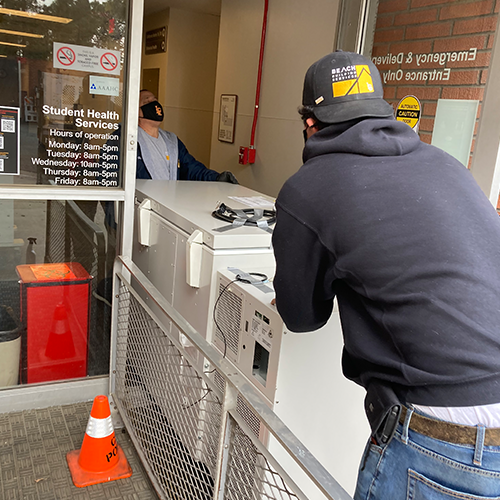
"It was a whirlwind of communication over a short period of time," said Giffin, "I'm happy that I could help in some way and facilitate vaccine distribution as soon as it was made available to us."
Thanks to the quick thinking and hard work of a dedicated technician and safety officers in CNSM, donor support, and a truly collaborative campus environment, the CSULB closed vaccine rollout plan was able to move forward as scheduled.
A Blast to the Past

When Dr. Andrea Balbas joined the College of Natural Sciences & Mathematics in Fall 2020, she had a clear goal. “I aim to understand the past to predict potential changes in Earth’s future,” Balbas said.
Dr. Balbas, assistant professor in the department of Geological Sciences at CSULB, is currently studying the timing of Earth's past natural processes to better understand their triggers and controls. Those processes include things like ancient instabilities of Earth's magnetic field, changes in cosmic ray flux to the Earth's surface, mega flooding events, and deep-ocean volcanism. Her research works to provide a timeframe for these events and understand how long natural environmental changes take, with an ultimate goal of predicting and tracking future events.
To help her establish her research at CSULB, Dr. Balbas received donor-supported start-up funding to set up her lab. When new faculty are brought on, their "labs" are little more than an empty room. Start up provides for anything from instruments and supplies to computers and large or specific equipment, anything that makes it possible to get the data needed.
Most importantly, establishing labs allows undergraduate students a chance to be directly involved in research. "I'm particularly excited to develop a student-driven research program that will begin investigating sediment cores recovered from the L.A. basin," Balbas said, "and how they record environmental changes associated with human activity over the past few centuries."
Dr. Balbas is currently funded to find out when volcanic structures in the Papahanaumokuakea Marine National Monument were built. According to Balbas, these deep-ocean volcanic structures were not built in the same process that is currently associated with the Hawaiian islands.

Monument with key features highlighted. These include Naifeh and
Un-named Cluster, that were explored on the E/V Nautilus Expedition
NA101 are outlined.
(Image provided by Andrea Balbas)
"We hypothesize the magmatism at these enigmatic volcanos [was] driven by deformation of the local Pacific tectonic plate by loading from the massive Gardner Seamount volcanic structure as it grew," Balbas said.
Dr. Balbas believes that similar research topics can open many doors for future generations of STEM students who are passionate about hands-on research and eager to learn more about the Earth's past. She feels that a shared curiosity about Earth is the best way to build relationships with students of all types, "So much about our planet it still unknown and this is fascinating to all people that call Earth home."
In the future, Dr. Balbas hopes to open a scientific museum for kids in the Long Beach community so that K-12 students can participate in hands-on research and hopefully inspire them to look into a future career in geological sciences.
"I have a dream to create a science museum for the wonderful and curious children of Long Beach," Balbas said, "In this design, community scientists will stay in the Long Beach area and earn a living wage at the museum to educate others about the sustainable future for Long Beach and its citizens."
Dr. Balbas' commitment to groundbreaking geological research and community science literacy will give her students of all types and from all backgrounds, present and future, opportunities to engage in exciting research and ultimately harness their unique and valuable contributions to society.
Balbas' lab will affect major scientific contributions while reaching out into the community to impact student lives and our K-12 system, and that's all thanks to donor support. We're so glad to have her in CNSM and we're grateful for what donor support can do for our faculty and students.
Scholarship Support During COVID-19 Has Made It All Worth It
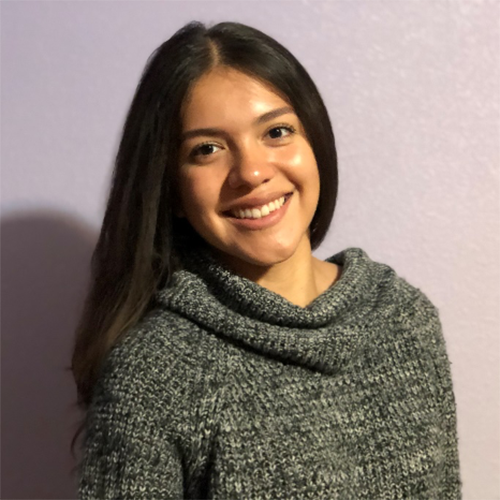
Having not received as much financial aid as she needed, Galilea Luquin-Estrada originally put her tuition on her credit card. Being a first-generation student, Galilea has largely had to navigate her higher education journey— both financially and academically— alone. And things have been a lot harder since the COVID-19 pandemic began.
When the university transitioned to remote operations, Galilea, a Molecular Cell Biology and Physiology undergraduate student, moved back in with her family in Northern California. She had come to see CSULB as a second home and greatly benefited from the diversity of resources and opportunities she had on campus. She was concerned about the amount of support she would be able to receive while distance learning.
"I think distance learning for all STEM students at this higher level is hard," Galilea said, "It's a very different experience. You're not able to exchange notes with classmates after class or talk to your professors after class as easily." On top of that, figuring out how to manage schoolwork with her whole family, including three younger siblings, at home added to the stress.
But when Galilea learned that she had been awarded the 2020-2021 Linnea Bucher Endowed Student Award and funds from the CNSM Scholarship Fund she was extremely relieved. "I realized this was really big— once I got over the shock. It saved me a lot of stress because I knew I would not have to take out a loan," she said.
The Linnea Bucher Endowed Student Award was established to provide similar financial support for students as Linnea and her husband were fortunate enough to have as they went through school and to encourage more women to pursue careers in STEM. The CNSM Scholarship Fund is funded entirely by your donations.
With generous donors lightening her financial load, Galilea has had more time and energy to devote to finishing her degree and focusing on what is ahead. Galilea is studying for the MCAT exam this summer and plans to apply to medical school in the fall. Her ultimate goal is own her own medical practice specializing in pediatric medicine in a small, rural community.
Although her in-person time at CSULB was cut short, Galilea is grateful to be a part of the Beach community. "I want to thank the donors for this. More than the money, I know my hard work is being seen," she said, "Sometimes low-income students can feel like they don't belong. But you have made me feel really good about myself. With your generous support, I am closer to my dream of representing more Hispanic women in the medical field. I feel like it's all going to be worth it."
Thank You!
Thank you for reading and thank you for your support.
We could not do the work we do without you.





